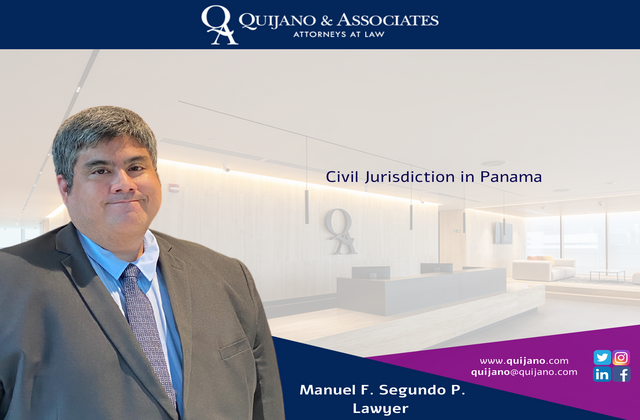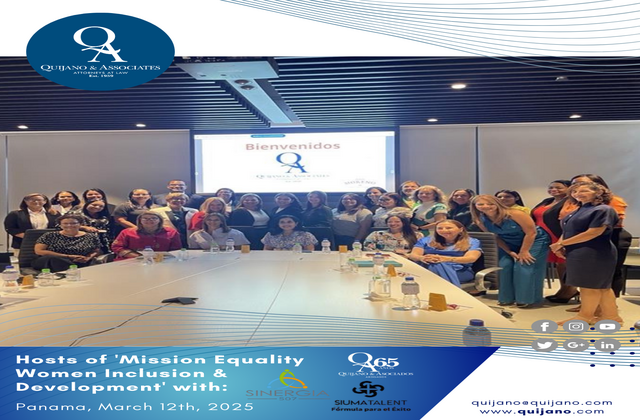Civil Jurisdiction in Panama

The Civil Code of Panama was established by means of law Law 2 of August 22, 1916. Civil law is the legal norm that regulates the relations between the members of a community. The purpose is to preserve the interests of the subject at a moral and patrimonial level.
There are many types of civil proceedings, including lawsuits or fines. Civil law covers any complication or disagreement without the intervention of the State.
An example of a civil proceeding is the breach of a sales contract. This may seem like a simple process of performance and delivery of a product or service. But civil law provides room for compensation.
The case may result in compensation when the product or service does not meet contractual standards or agreed conditions. The compensation may depend on the clauses set forth in the contract.
What are the steps of a Civil Process in Panama?
A civil proceeding usually begins with a complaint in court. The plaintiff is the party that initiates the proceeding and files the complaint. In the lawsuit, the plaintiff must state all parties involved, the facts and the legal basis for the lawsuit.
The court will then issue a resolution. It declares the claim and notifies the other party, i.e., the defendant. After the defendant responds, the judge will summon the parties to an appearance. The defendant and the plaintiff will be accompanied by an attorney. During this meeting, they will attempt to reach an agreement.
If the parties reach an agreement, the judge declares it in the judgment. Compliance with the agreement is binding on both parties. If the parties do not reach an agreement, they will be summoned to an oral trial to present supporting evidence.
After hearing the supporting evidence, the judge will evaluate the facts and arguments alleged by each party. At the end, the judge makes a final decision. This final decision is legally binding for both parties.
Types of Civil Proceedings in Panama
The processes in this jurisdiction are the following:
1.Ordinary Process: The ordinary lawsuit is the act of postulation of the plaintiff by which an ordinary judicial process is initiated,that is, in the civil jurisdiction. The lawsuit involves the exercise of the civil right of action and the filing of a claim against the defendant.
2. Intestate Succession Process: Intestate succession is that in which there is no legal record of the deceased to distribute his assets; or, in which there is a record that does not meet the requirements of the law. In this case, the distribution of the assets is made among the persons called to inherit according to what the law provides.
3. Testamentary Succession Process: Testate succession is that in which the deceased has left a record of his/her will by means of a testament, following the requirements of the law.
4. Simple Executive Process: It is the judicial proceeding, by means of which one of the parties goes to a competent court or tribunal with the purpose and the pretension of making enforceable an obligation that is supported in a value or executive title that consists of the obligation to give, to do or not to do.
5. Executive Mortgage Process: Procedural activity by means of which a creditor, based on the existence of a mortgage title, seeks the protection of a jurisdictional body so that the debtor is coercively obliged to comply with the obligation.
6. Executive Pledge Process: The basic purpose of the executive process with a title pledge is the sale of the goods subject to the lien in order to cancel the monetary obligations with the proceeds thereof, hence it is commonly known as a sale trial.
7. Summary Proceedings (Division and Sales, Easement, Possessory Injunctions, New Construction Complaint, Ruinous Construction Complaint, Traffic Accidents, Account Rendering, Evict and Eviction): The summary or summary trial is an abbreviated judicial proceeding applied to the prosecution of facts in which celerity is required, and the stages have been cut or suppressed. .
8. Non-contentious Proceedings (Measurements and Boundaries, Payment by Consignment, Presumption of Demise, Demarcation and Signposting): Non-contentious or voluntary jurisdiction proceedings are those in which matters are heard where there is no conflict of interest or litigation, at least in theory, i.e., there are no parties that assume the capacity, properly said, of plaintiff and defendant, this does not preclude, however, that, within our system, the figure of opposition is present.
9. Bankruptcy Proceeding: The bankruptcy proceeding is a legal procedure designed to solve the problems of insolvency and lack of liquidity of a business, a procedure that seeks, on the one hand, that creditors may be paid and, on the other hand, the search for solutions to achieve the continuity of the business and avoid bankruptcy.
10. Expropriation Process. It is the way the State takes away the ownership of a property or a right from a particular person, in exchange for compensation.
Do not hesitate to contact our team of experts to obtain more information on the types of civil proceedings in Panama for the situation in question.




